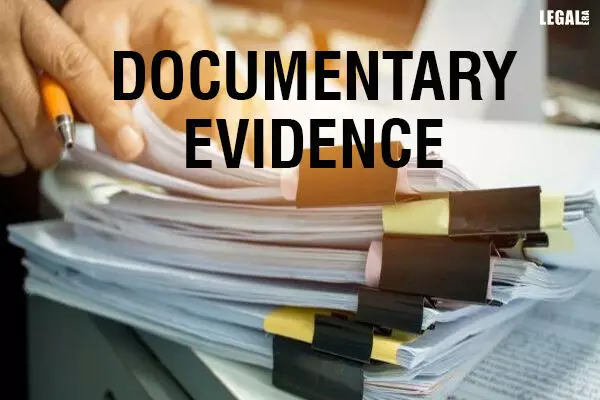- Home
- News
- Articles+
- Aerospace
- Artificial Intelligence
- Agriculture
- Alternate Dispute Resolution
- Arbitration & Mediation
- Banking and Finance
- Bankruptcy
- Book Review
- Bribery & Corruption
- Commercial Litigation
- Competition Law
- Conference Reports
- Consumer Products
- Contract
- Corporate Governance
- Corporate Law
- Covid-19
- Cryptocurrency
- Cybersecurity
- Data Protection
- Defence
- Digital Economy
- E-commerce
- Employment Law
- Energy and Natural Resources
- Entertainment and Sports Law
- Environmental Law
- Environmental, Social, and Governance
- Foreign Direct Investment
- Food and Beverage
- Gaming
- Health Care
- IBC Diaries
- In Focus
- Inclusion & Diversity
- Insurance Law
- Intellectual Property
- International Law
- IP & Tech Era
- Know the Law
- Labour Laws
- Law & Policy and Regulation
- Litigation
- Litigation Funding
- Manufacturing
- Mergers & Acquisitions
- NFTs
- Privacy
- Private Equity
- Project Finance
- Real Estate
- Risk and Compliance
- Student Corner
- Take On Board
- Tax
- Technology Media and Telecom
- Tributes
- Viewpoint
- Zoom In
- Law Firms
- In-House
- Rankings
- E-Magazine
- Legal Era TV
- Events
- Middle East
- Africa
- News
- Articles
- Aerospace
- Artificial Intelligence
- Agriculture
- Alternate Dispute Resolution
- Arbitration & Mediation
- Banking and Finance
- Bankruptcy
- Book Review
- Bribery & Corruption
- Commercial Litigation
- Competition Law
- Conference Reports
- Consumer Products
- Contract
- Corporate Governance
- Corporate Law
- Covid-19
- Cryptocurrency
- Cybersecurity
- Data Protection
- Defence
- Digital Economy
- E-commerce
- Employment Law
- Energy and Natural Resources
- Entertainment and Sports Law
- Environmental Law
- Environmental, Social, and Governance
- Foreign Direct Investment
- Food and Beverage
- Gaming
- Health Care
- IBC Diaries
- In Focus
- Inclusion & Diversity
- Insurance Law
- Intellectual Property
- International Law
- IP & Tech Era
- Know the Law
- Labour Laws
- Law & Policy and Regulation
- Litigation
- Litigation Funding
- Manufacturing
- Mergers & Acquisitions
- NFTs
- Privacy
- Private Equity
- Project Finance
- Real Estate
- Risk and Compliance
- Student Corner
- Take On Board
- Tax
- Technology Media and Telecom
- Tributes
- Viewpoint
- Zoom In
- Law Firms
- In-House
- Rankings
- E-Magazine
- Legal Era TV
- Events
- Middle East
- Africa
Madhya Pradesh High Court: ‘Documentary Evidence’ not Obligatory to Avail Remedy under Section 17 of SARFAESI Act against Secured Creditor

Madhya Pradesh High Court: ‘Documentary Evidence’ not Obligatory to Avail Remedy under Section 17 of SARFAESI Act against Secured Creditor
The Madhya Pradesh High Court has observed that ‘Documentary Evidence’ is not a pre-condition to avail remedy under Section 17 of the Securitization and Reconstruction of Financial Assets and Enforcement of Security Interest Act, 2002 (SARFAESI Act) against secured creditor’s alleged action under Section 13(4) of the Act.
In the present case the petitioners- M/S Agrawal Coals and Logistics (Partnership) had filed a case before the Debt Recovery Tribunal (DRT) against respondent- Tata Motors Finance Limited challenging the repossession of vehicle without following the SARFAESI Act. The Registrar of DRT refused to register the case on the ground that there is no document to show that the repossession of vehicle took place.
Subsequently, the petitioners preferred chamber appeal before the Presiding Officer of DRT which was dismissed. Being aggrieved the petitioners then filed a writ petition before the Madhya Pradesh High Court.
Advocate Prabhanshu Shukla appearing for the petitioner contended that when no documents were given while taking possession of the vehicle, the expectation of Tribunal that some documents should have been filed is without any basis, and there was no reason to disbelieve the pleadings. It was further contended that neither the SARFAESI Act nor the Rules make it obligatory to file any such document to substantiate the case.
The bench comprising of Justices Sujoy Paul and Amar Nath Kesharwani observed that on a conjoint reading of Section 13(4) and Section 17(1) of the SARFAESI Act makes it clear that what is required to be established is that the secured creditor has taken measure under sub-Section (4) of Section 13 in order to invoke the remedy under Section 17 of the said Act.
Section 17 provides remedy of appeal before DRT to any person, including the borrower, aggrieved by measures taken by the secured creditor under Section 13(4) of the Act for recovery of his secured debt.
In the present case, the bench noted that no documents were made available to the petitioner, the petitioner categorically pleaded in this regard which was even accepted by learned Presiding Officer that vehicle was repossessed. If no document was given to the petitioner, an impossible act to produce the document should not have been expected by the Tribunal.
The Court pertinently highlighted that when filing of such document is not a condition precedent for entertaining and registering an application under Section 17 of the SARFAESI Act.
It thus, set aside the orders passed by the Registrar and Presiding Officer of the DRT and directed the Tribunal to register the application preferred by the petitioner under Section 17 of the Act and proceed therefrom in accordance with law.



